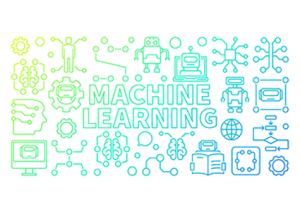Machine learning supports sustainable manufacturing By Ara Surenian
he world is facing an ever-increasing threat of climate change and its consequences. With both sea levels and global temperatures on the rise, it is no surprise that environmental concerns are taking center stage globally. As the warnings become more dire, more businesses, government leaders and consumers are acting and changing their behavior to protect the environment.
Manufacturing, and the methods used, have long been known to have a major impact, both negative and positive on sustainability initiatives. This means that manufacturers that prioritize sustainable production practices can make a considerable impact on the environment. The other good news? Manufacturers who prioritize sustainability can also reap significant financial rewards, strengthen customer relationships and improve their reputation.
The root of the problem

Manufacturing is a major player in driving the global economy, however, historically manufacturing’s impacts on the environment have been far from ideal. Despite efforts to make strides towards greener production processes, an alarming $8 trillion of waste per year is still created within the industry – due in large part to product defects, over-production and inefficient transportation methods.
Waste is the enemy of environmentalism and efficiency, and the first step to eliminating waste is understanding what it is and where it comes from. Waste is broken down into eight categories: over-production, waiting (idle workers or machines), inefficient operations, transport, inventory, motion, poor quality and misused impacts resources.
All industries generate excess. For example in the food and beverage industry, a recent study found that human error on the production line was the root cause of 10.2 million tons of food waste in the United Kingdom. This comes at an enormous cost to the industry.
In short, when waste is reduced, it leads to greater profit margins and a smaller environmental footprint.
Technology advances sustainable manufacturing initiatives
To eliminate waste and build a more sustainable future, many manufacturers are leveraging the latest advances in technology. Substantial resources are being poured into research and development (R&D), as well as the adoption and implementation of new technology to minimize waste production.
For example, artificial intelligence (AI) and machine learning (ML) are revolutionizing the pursuit of sustainability, allowing companies to identify potential waste upfront, including carbon waste from inefficient transportation routes or waste created on the production line due to overproduction.
The manufacturing industry is paving the way for greater efficiency through ML – from reducing costs to enhancing quality to minimizing waste. By embracing this technology, companies can accelerate their success while also reaching sustainability goals.
For example, ML can be used to manage quality to avoid recalls, a massive waste offender. When products are recalled due to quality, not only does that material get trashed, but the average food recall costs a company $10 million dollars. Implementing ML and AI along the assembly line to monitor for quality can reduce the risk of recall and protect from catastrophic costs associated with it.
Going green to save green

With the emergence of ML, manufacturers can now forecast future demand with greater accuracy and precision than ever before. ML is not just used to forecast demand for specific products, it can also be used to provide insights that reduce downtime, create more efficient operations and improve overall quality.
Insights provided by ML give businesses unprecedented insight into future needs and outcomes by allowing them to leverage a variety of data sources to develop accurate forecasts and anticipate shifts in demand. Accurately forecasting inventory and demand levels can be a powerful asset in the effort to reduce waste. By gaining insight into what customers are likely to want, businesses have an opportunity not only to cut down on related costs but also to eliminate unnecessary production runs or downtime.
The first step to more sustainable manufacturing
Luckily, manufacturers don’t need an in-house data scientist to implement and monitor AI and ML platforms. By working with partners that have the technology solutions and expertise to optimize operations, manufacturers can get the most out of their sustainability investments, without making astronomical capital investments.
With the right partners, manufacturers can revolutionize demand forecasting by invisibly integrating machine learning into their existing workflows. This enables planners to effortlessly utilize data they already possess and maximize efficiency while reducing their environmental impact.
A win-win for manufacturers and the environment
By implementing sustainability initiatives manufacturers can help curb climate change and protect the environment. This is both a moral imperative, as well as business savvy, as manufacturers are learning that going green can bring in more green (in the money sense).
Whether manufacturers are optimizing inventory accuracy to cut down on excess production, finding ways to limit downtime to save power and resources, making transportation more efficient to reduce carbon emissions or improving quality to reduce the number of recalls – all these efforts are for the greater good, of both the enterprise and the environment.
For a list of the sources used in this article, please contact the editor.
Ara Surenian is VP of Product Management at Plex Systems, Inc., a Rockwell Automation Company. A leader in cloud-delivered smart manufacturing solutions, Plex is empowering the world’s manufacturers to make awesome products. Its platform gives manufacturers the ability to connect, automate, track, and analyze every aspect of their business to drive transformation. Rockwell Automation, Inc, is a global leader in industrial automation and digital transformation. www.plex.com
